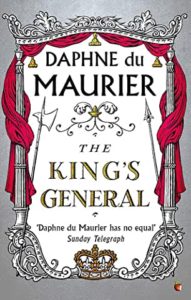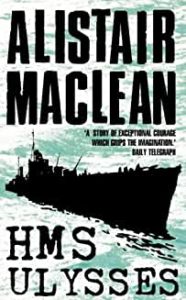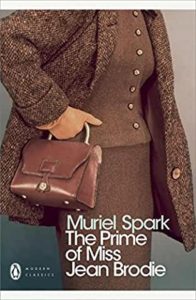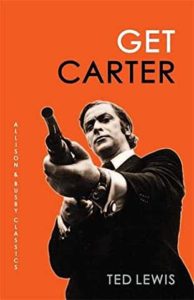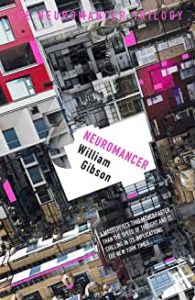Decades: Compiling the Ultimate Library with Louise Fairbairn
Back in January I decided I wanted to build up a library of essential reads as chosen by booklovers. I started with empty shelves and I invite each of my guests to nomainate five books they feel should be added to my Ultimate Library. There are two rules:
1 – Choose ANY five books
2 – You can only choose one book per decade over five consecutive decades.
Today I am joined by Louise Fairbairn. Journalist, blogger and frequent chair and contributor to many book events. Recently Louise helped me prepare for my first appearance in an online event (which still remains secretly under wraps) and her wise council was very much appreciated as the butterflies were taking hold. I am frequently in awe of the diverse range of books she is able to discuss in depth and her assistance with my Decades project was always something I had hoped would happen.
I will hand over to Louise and invite her to introduce herself and her five selections.
DECADES
 I’m a freelance production journalist and proofreader, and was the crime fiction reviewer for The Scotsman newspaper for several years. I chair the occasional event, am a Bloody Scotland Book Club panellist, and currently am a judge for New Zealand’s 2021 Ngaio Marsh Award for Best First Novel. I blog about crime fiction as The Girl With All The Crime Books (www.crimebookgirl.com / @crimebookgrrl), and ramble on about other stuff as @scarletrix on Twitter.
I’m a freelance production journalist and proofreader, and was the crime fiction reviewer for The Scotsman newspaper for several years. I chair the occasional event, am a Bloody Scotland Book Club panellist, and currently am a judge for New Zealand’s 2021 Ngaio Marsh Award for Best First Novel. I blog about crime fiction as The Girl With All The Crime Books (www.crimebookgirl.com / @crimebookgrrl), and ramble on about other stuff as @scarletrix on Twitter.
1940s
1946 Daphne du Maurier – The King’s General
I had a bit of a Daphne du Maurier binge a couple of years ago, and discovered this gem. She wrote a string of novels (most famously Rebecca) and heaps of short stories (including The Birds and Don’t Look Now), and led a rather peculiar life, if Margaret Forster’s biography is in any way accurate. All her novels are very different, all of them testament to an incredible imagination – and they’re often a bit *odd*. The King’s General is set around the time of the English Civil War, and is a romance with a bit of a mystery, but mostly is an incredible portrait of a woman’s life and the strength she finds when so much is ranged against her. I normally don’t much like historical fiction, and I’m definitely not a fan of romance, but this is just terrific – utterly gripping plot, a fascinating history lesson, and chock-full of emotional intrigues.
1955 Alistair MacLean – HMS Ulysses
I wanted to drop in an Alistair MacLean because they’re great action thrillers that sold ridiculous amounts of millions of copies in his lifetime, yet he’s all but forgotten these days and I think he shouldn’t be. But just to be awkward, I’m recommending his debut, HMS Ulysses because it’s not like all the others. As with several of his later novels, it draws on his experiences during the Second World War, but while it’s fiction, it has no need to exaggerate for effect because the experience of the Arctic convoys was so extreme. The thriller plot holds the attention fine, but what sticks in the mind is the battle against the elements as much as the enemy, and the way he evokes the deep-seated fear of the men who went through hell every time they left port. It’s a book that tears at you, but you cannot put it down. Unlike several other titles of his, it made such an emotional impact I’m not in a rush to re-read it, but it’s astonishingly powerful.
1961 Muriel Spark – The Prime Of Miss Jean Brodie
I almost went with The Girls Of Slender Means, which I adore, but there’s a reason The Prime Of Miss Jean Brodie is so well known and so enduring and it’s not just Maggie Smith’s amazing portrayal in the 1969 film. The novel is only 128 pages long, but it’s absolutely rammed full of plot, character work, evocation of place and some of the sharpest, wittiest, most poignant foreshadowing you’ll ever see in fiction. I studied it at university, and it was among the few books that I enjoyed rather than endured, then have re-read it several times since as it’s just so entertaining and rewarding. Spark was a poet, so stuffing lots of ideas and sensations into a tiny number of sentences was in her nature, but it’s still a masterclass in how much richness you can offer in so few words.
1984 William Gibson – Neuromancer
I spent a lot of my teens and 20s reading sci-fi and fantasy, and comics, and still dip into that world now and then (comics is a medium, not a genre, people!), so Neuromancer in part stands for all that. It’s also just a little slice of genius. As with SF authors since forever ago, William Gibson gives us a brave new world extrapolated from and built on the one we live in – plus here he gives us the terms “cyberspace” and “the matrix”, and is credited with creating the archetypal “cyberpunk” novel. Information is thrown at you with no explanation, just go with it and you’ll find it’s a great ride – and something of a crime novel too, if you care to look at it from a certain angle. It’s perhaps dated now, but try and read it in the spirit of 1984 (I first read it circa 1989, hat tip to my pal Neal for pressing it into my hand) and feel its freshness, and the wonder and glee of that first audience. Gibson’s whole oeuvre is worth exploring, he’s a very thoughtful writer who sees the world from interesting angles.
Some big, big titles in this selection. My thanks to Louise for taking on my Decades challenge – I know she spent quite a lot of time deliberating over her final selection as I got frequent updates which suggested I had caused some frustration!
You can see all the books which have been added to my Ultimate Library here: https://grabthisbook.net/?p=5113
DECADES WILL RETURN
